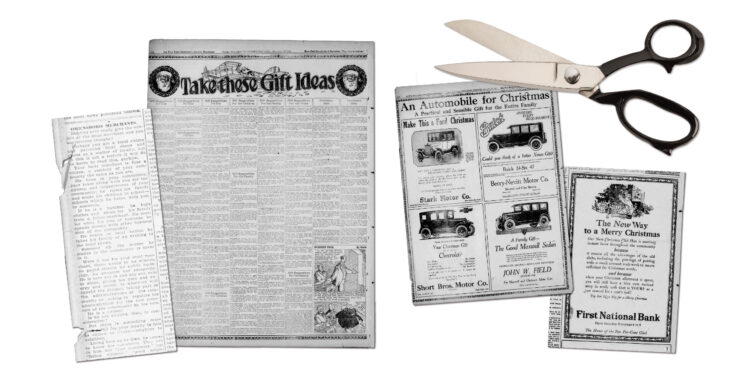Christmas has been around for more than 2,000 years.
Tradition tells us that the first Thanksgiving was celebrated in 1621, and George Washington declared it a national holiday in 1789.
Black Friday originated in the 1950s, first as a description of the chaos experienced by policemen in Philadelphia as sports fans and tourists crowded into the city for the annual Army-Navy football game – and to get a head start on holiday shopping. The designation evolved about a decade later to describe the day on which stores made a profit, taking their bookkeeping from negative red ink to positive black ink, while consumers happily purchased Christmas gift bargains.
What else has remained a longstanding tradition through the years?
The encouragement for those shoppers – on Black Friday or otherwise – to “Shop Local.”
The Greater Owensboro Chamber of Commerce sponsors two such campaigns each year, one in the summer and one in November to kick off the official start of Christmas shopping season. Locally owned businesses, small and large, new and long-established, open their doors to welcome friends and neighbors to browse their wares … and buy, buy, buy!
The many benefits of supporting local businesses are touted throughout this issue of Owensboro Living magazine – but what was the prevailing philosophy of the subject 100 years ago?
Turning back the pages of local archives reveals an article published in the Owensboro Messenger newspaper on April 25, 1923, composed by an unknown writer whose words echo just as truly today as they did then.
The article reminds readers that “Your local merchant is first a citizen, a resident of your community the same as you are. He … pays taxes along with you for the upkeep and improvement of your community; he raises his family and sends his children to school – schools which he helps, with you to maintain.”
The author goes on to say that local merchants not only make their money locally – they spend it locally, too: “No matter what his line of business, he spends money with other business men of the community. He banks in local banks; he takes his family of an evening to the local shows. Summed up, the money he makes in the community is spent in it.”
Not only that, the writer said, but the local merchant depended not just on “customers,” but upon friends and neighbors for his livelihood … and they in turn depended upon him for excellent service, honest dealings and quality merchandise.
And just how many local businesses were there to be supported? A LOT.
In fact, one full-page advertisement featured 230 listings under the headline “Take these Gift Ideas”! Ads were featured under various categories, including “Gift Suggestions for Him” (wallets, lap robes, automobile batteries); “… for Her” (phonograph records, luggage, diamond rings, a new car); “… for the Children” (stick candy, fireworks, air rifles, dolls); “… for the Family” (gas stoves, musical instruments, a home telephone, a new house (!)”; “…for the Home” (electric wiring, furniture, a load of coal); and the ever-popular “Christmas Eats” (fruit cakes, coffee, poultry and sweet milk).
Of all the businesses listed among these 230 ads, only a few names are still familiar 100 years later. Even fewer, so far as this writer can determine, are still in business, including Danhauer Drugs, which was selling fountain pens, safety razors, cigars and cigarettes in Christmas boxes, perfumes and toilet waters a century ago; and Greenwell-Chisholm Printing Co. and Progress Printing (now Proforma), selling greeting cards, visiting cards and embossed stationery.
A few, such as F.W. Woolworth and V.J. Steele Coal Co. among them, evolved into other industries that still survive; and some, such as Gabe’s Place (“Just a real good place to eat”), are gone but still fondly remembered.
As we ponder this evolution, it would do us all well to remember that the businesses that we hope will be thriving and successful in the future – need our support and patronage today.
Shop Local, Owensboro. OL










